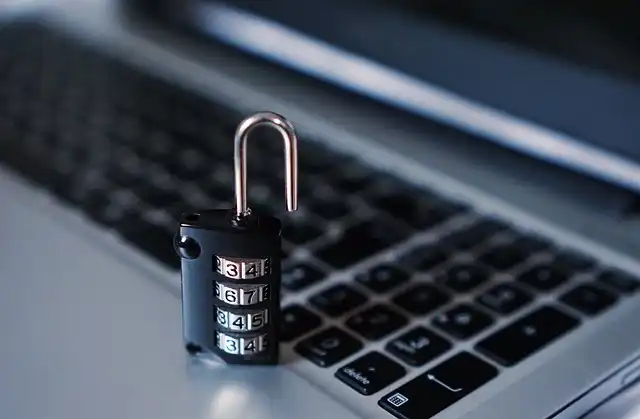Russia, Election Interference & Intelligence: 2016 Assessment

Intelligence assessments of Russian meddling in the 2016 election were debated. The FBI & CIA had high confidence Russia aimed to damage Clinton & discredit the election process, while the NSA expressed moderate confidence.
On Dec. 8, 2016, knowledge neighborhood authorities discussed the Head of state’s Daily Short, stating Russians did not affect election outcomes using cyberattacks. Authorities intended to issue the classified brief to Obama the following day but did not.
Intelligence Community’s Initial Assessment
This is misleading. Intelligence officials’ forecasts before the political election were not cut and dried. The emails reveal some backward and forward among knowledge officials in various agencies in the months preceding Political election Day.
A Sept. 2, 2016, e-mail from the FBI said a sentence in a file pertaining to Russia’s intent need to be “softened.” The email said the unedited sentence “would suggest that we have clear-cut details that Russia does mean to interrupt our political elections and we are uneasy making that evaluation at this moment.”
FBI’s Concerns and Adjustments
The dossier was assembled during the 2016 U.S. presidential project by former British knowledge policeman Christopher Steele and contained countless dynamite yet unverified cases regarding the Trump campaign and Russia.
Russian disturbance in 2016 consisted of hacking the Autonomous National Committee and the project of Hillary Clinton, the Democratic governmental nominee who shed to Donald Trump, and spreading out publicity. That interference was created to sow dissonance and political election distrust.
“The drive of the evaluation is that there is no sign of a Russian hazard to directly control the real vote matter through cyber suggests,” the official composed. “Nevertheless, as seen in current media coverage, any kind of cyber activity guided against the political election infrastructure is most likely to have an impact on public self-confidence– also if the cyber procedure is not successful or otherwise meant to influence the election,” such as a hazard from a citizen registration data source.
Obama’s Request for a Comprehensive Review
Around the very same time, Obama asked for an extensive evaluation concerning Russian meddling back to 2008, including how Moscow sought to affect the 2016 election and what it hoped to attain, and an evaluation of feasible future risks.
The two-year Mueller report offered a sweeping narrative of Russia’s 2016 political election disturbance and declared the knowledge community’s conclusion that Russia preferred Trump over Clinton. However, Mueller found the Kremlin’s act upon Trump’s part and various contacts between the project and Russia didn’t rise to the level of criminal conspiracy or sychronisation.
Yet Gabbard oversimplifies the circumstance with Russian political election interference in 2016. “Interference” is a wide word. It was not just a question regarding whether Russia would certainly modify votes and the election’s result– which did not take place.
Gabbard based her July 23 statements on papers she declassified in July, including government e-mails and reports by knowledge authorities during the final months of Obama’s presidency and a Home board record written by Republican politicians in 2017 and updated in 2020. Gabbard called for a criminal examination, and the Justice Division introduced a brand-new “strike pressure” to assess the info.
Gabbard’s Declassified Documents
Director of National Knowledge Tulsi Gabbard stated she uncovered evidence that straight indicates former President Barack Obama “leading the production of this intelligence assessment” about Russia’s participation in the 2016 united state political election.
Papers show some argument about the self-confidence in some conclusions. The FBI and CIA had high self-confidence that Russia sought to reject the United state political election procedure and damage Clinton’s reputation in assistance of Trump. The NSA expressed moderate self-confidence in these verdicts.
Confidence Levels in Intelligence Conclusions
The e-mail suggested transforming the phrasing so that it really did not “misdirect the viewers to believe that the (intelligence area) presently has information suggesting Russia has a recognized intent to influence the elections.”
“Moscow would certainly have seen its election impact campaign as at the very least a certified success regardless of the outcome of the political election as a result of its perceived capability to impact public conversation in the United States,” it stated.
On Aug. 31, 2016, an official created that a team was working with the Central Knowledge Firm on a President’s Daily Brief submission– a knowledge report gotten ready for the president and top authorities– on the threat.
The FBI and CIA had high self-confidence that Russia looked for to discredit the United state election process and damage Clinton’s online reputation in assistance of Trump.
A Sept. 14 record to Obama stated international adversaries, most notably Russia, “can carry out cyber operations versus political election infrastructure to weaken the trustworthiness of the process and weaken the regarded legitimacy of the winning candidate.”
For example, the Sept. 2 FBI e-mail said, “In a very close race, it is absolutely possible that a very targeted cyber attack aimed at adjusting votes might result in a change to the reputable outcomes and affect the outcome of the election,” such as in a swing county in a swing state.
Gabbard oversimplifies the scenario with Russian political election interference in 2016. It was not simply a question regarding whether Russia would modify ballots and the political election’s result– which did not occur.
Potential Impact on Voter Registration
That analysis, produced in early January 2017, claimed Russia “possibly was in a setting to damage some voter registration databases” yet “the types of systems we observed Russian stars targeting or compromising are not involved in ballot tallying.”
Knowledge authorities used the file, to some extent, to persuade a Foreign Knowledge Security Act court to license surveillance of Trump project adviser Carter Page. It was the actions of another Trump project consultant– George Papadopoulos– that really started special guidance Robert Mueller’s examination into whether the Trump project devoted misdeed.
Knowledge officials’ forecasts before the election were not reduce and dried. The e-mails show some back and forth amongst knowledge authorities in various agencies in the months preceding Political election Day.
1 2016 election2 cyber attacks
3 Donald Trump
4 election interference
5 intelligence assessment
6 Russia
« US Ice Cream Trade: Surplus, Deficit, and MixesTrump ‘Dumbest Voters’ Quote: Debunked Claim »
